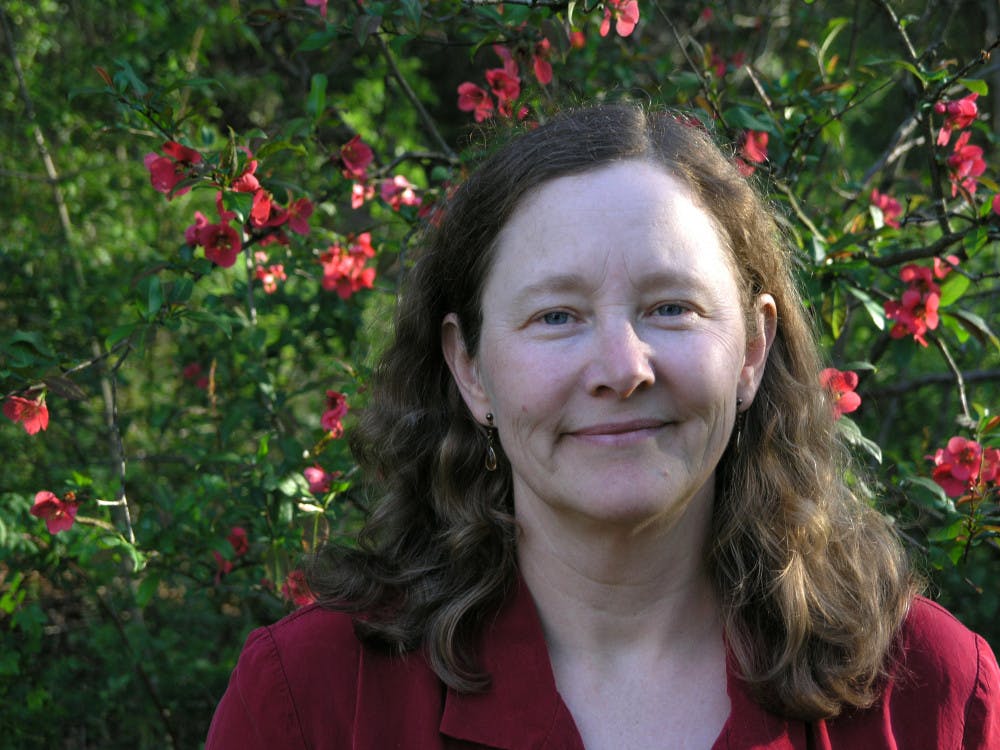By Gabrielle Beacken
News Assistant
Dr. Janet Morrison does not have to rely on her belief that faculty-student engagement works. She has seen the beneficial results of professor-student collaboration firsthand.
With over 25 years of research with undergraduate students, including positions such as Director of Faculty-Student Scholarly and Creative Collaborative Activity at the College, Morrison surely understands the importance of professor-student research relationships.

Morrison, a professor of biology at the College, has been recommended as the inaugural recipient of the Barbara Meyers Pelson ’59 Chair in Faculty-Student-Engagement. The award praises and promotes tenured, full-time professors with an outstanding history of student-faculty research, collaboration and teaching.
According to the College’s website, this is the school’s first-ever endowed chair. Class of 1959 alumna Barbara Meyers Pelson donated $1 million to fund the faculty-student collaboration program.
“This inaugural chairship celebrates the engagement of students in their own education and the creation of a collaborative intellectual community as hallmarks of the TCNJ experience,” according to the website.
The professor recommended for the award will serve a three-year chair appointment and receive funds for faculty-student research.
“I am very honored and pleased to be chosen for the Barbara Myers Pelson ’59 Chair,” Morrison said. “I am looking forward to the opportunities it offers to extend my work with undergraduates in plant ecology research while also working on initiatives in faculty-student engagement for the entire campus.”
As a part of her application for the award, Morrison suggested new programs to increase faculty-student research and collaboration. Morrison proposed to focus on two areas that she thinks would most benefit from an enhancement.
“First, I will follow up on a long-standing commitment I have to provide more access to research opportunities to underrepresented students, in all program areas of the college,” Morrison said. “Second, I plan to work on developing more capacity for this type of engagement in the professional schools where it has not typically been the norm to do much in the way of faculty-student collaboration.”
Part of the budget that the Chair receives will go toward “TCNJ Workshop Series in Faculty-Student Engagement” and to the annual Barbara Myers Pelson ’59 Lecture, Morrison said.
Through experiences in research collaboration, Morrison has defined a method for allowing students to work together on large, shared projects while also receiving individual attention and mentoring. Typically, after students join a research team as a “shadow,” the student then continues as a full-time researcher during the semester for Independent Research course credit or through the Mentored Undergraduate Summer Experience (MUSE).
“The research and our own experiences here clearly show that deep engagement in collaboration with an invested, caring mentor maximizes learning,” Morrison said. “Also, it has a huge positive influence in sustaining and deepening student interest in the subject, which is very important for retaining students in challenging fields.”
Since Morrison’s students stay with her in the lab for three or more semesters, including a summer, Morrison has had the opportunity to become colleagues with her students, rather than solely their professor.
The collaborations are very rewarding, Morrison said. She and her students have engaged in a variety of projects that includes the study of plant and pathogen interactions, competition studies between different species in a greenhouse and a field and plants interactions with deer.
“Research and collaborative creative activity is full of teamwork, long-term planning, problem solving, analysis of complex results and communicating to many audiences,” Morrison said. “It provides a terrific avenue for students to develop the higher-order intellectual skills that they are here in college to nurture.”
Students in Morrison’s Ecology courses also benefit from semester-long research projects.
“Those focus on a huge range of questions — and not just about plants,” Morrison said. “For example, we almost always have a group that studies the behavioral ecology of squirrels.”
Morrison desires to entice science and non-science majors to learn more about ecology through research.
“It would be great to have more people interested in the science of ecology, since it has so much to say and offers such a powerful lens (but not the only one) through which to understand humans’ environmental challenges,” she said.
Morrison is also excited to offer a new course for non-science majors that discuss invasive species in our environment called “The Biology of Alien Invasions.”
Since information is presented in “bite-sized bits these days,” Morrison encourages those unaware of environmental issues or the field of ecology to develop their own research by reading articles from science publications.
If it were not for undergraduate students, professors would not be able to maintain active research, Morrison said. According to the professor, by involving students in professional research, they are “engaged in real scholarship that is right there in the mix with other professional scholars.”
“These are not skills that you develop from doing short term class assignments and studying for exams,” Morrison said. “They are the skills that will put you in an excellent position to pursue high-level careers in the future, with a nimbleness of mind that will serve you well in a rapidly changing world.”







